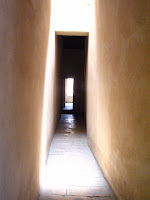 Friday sermon (jum'ah khutba) by Sheikh Abdal Hakim Murad - 30 October 2009 - Cambridge - 22 mins 30 secs
Friday sermon (jum'ah khutba) by Sheikh Abdal Hakim Murad - 30 October 2009 - Cambridge - 22 mins 30 secsThe Prophet Muhammad (may Allah's peace and blessings be upon him) famously prayed to be resurrected among the masakin (poor, downtrodden, oppressed), but what does it mean to be miskin and what was the prophetic attitude to poverty or hardship? In this sermon, Sheikh Abdal Hakim outlines the Qur'anic and prophetic description of the poor (fuqara') and shows why it is important not to be afraid of poverty as we often are today. This is not because it is necessarily a good thing in itself to be poor, or on the other hand a bad thing to be rich or powerful, but because of the beauty and dignity of cultivating reliance on Allah whatever one's outward state.
Listen to this sermon
Download this sermon









































